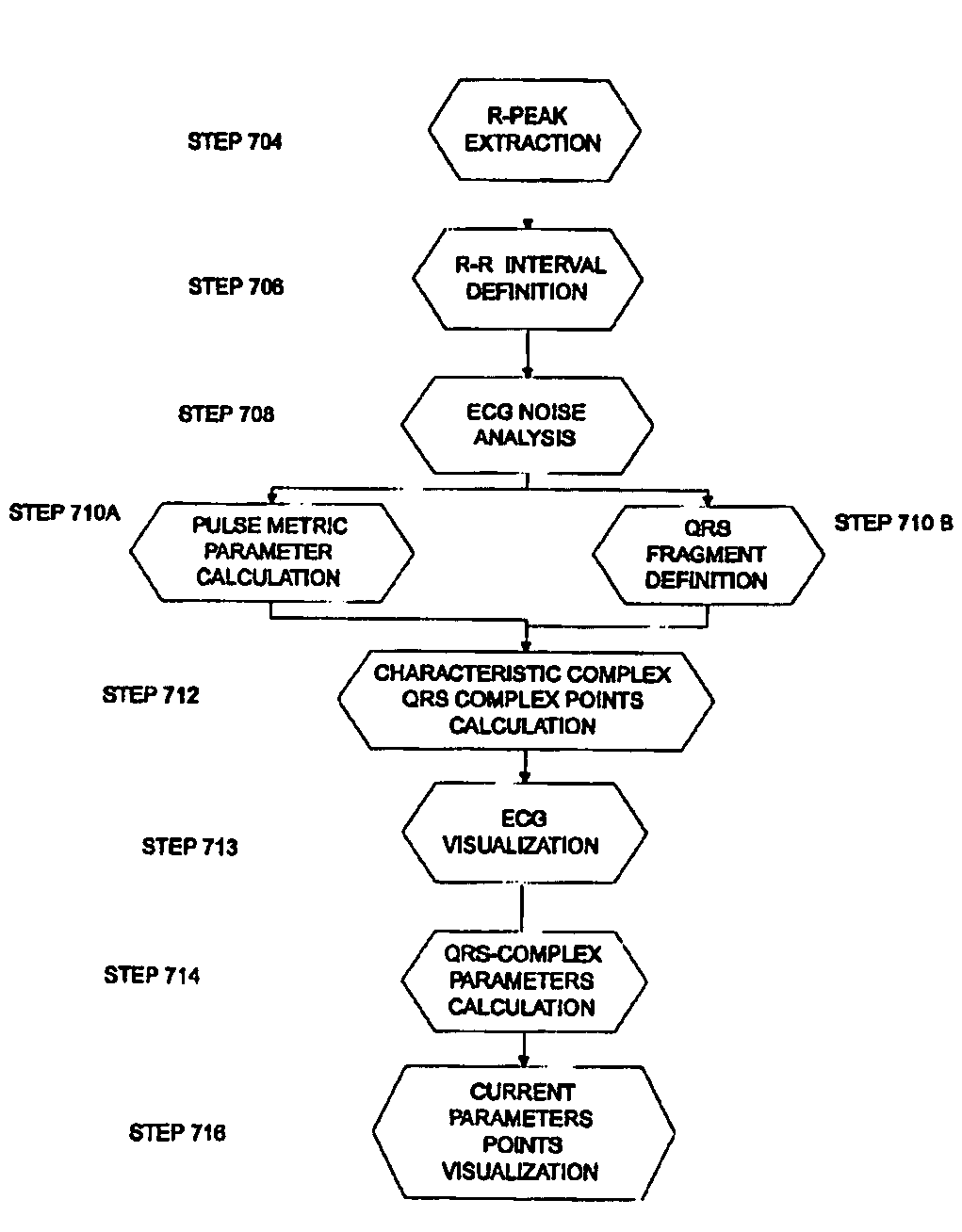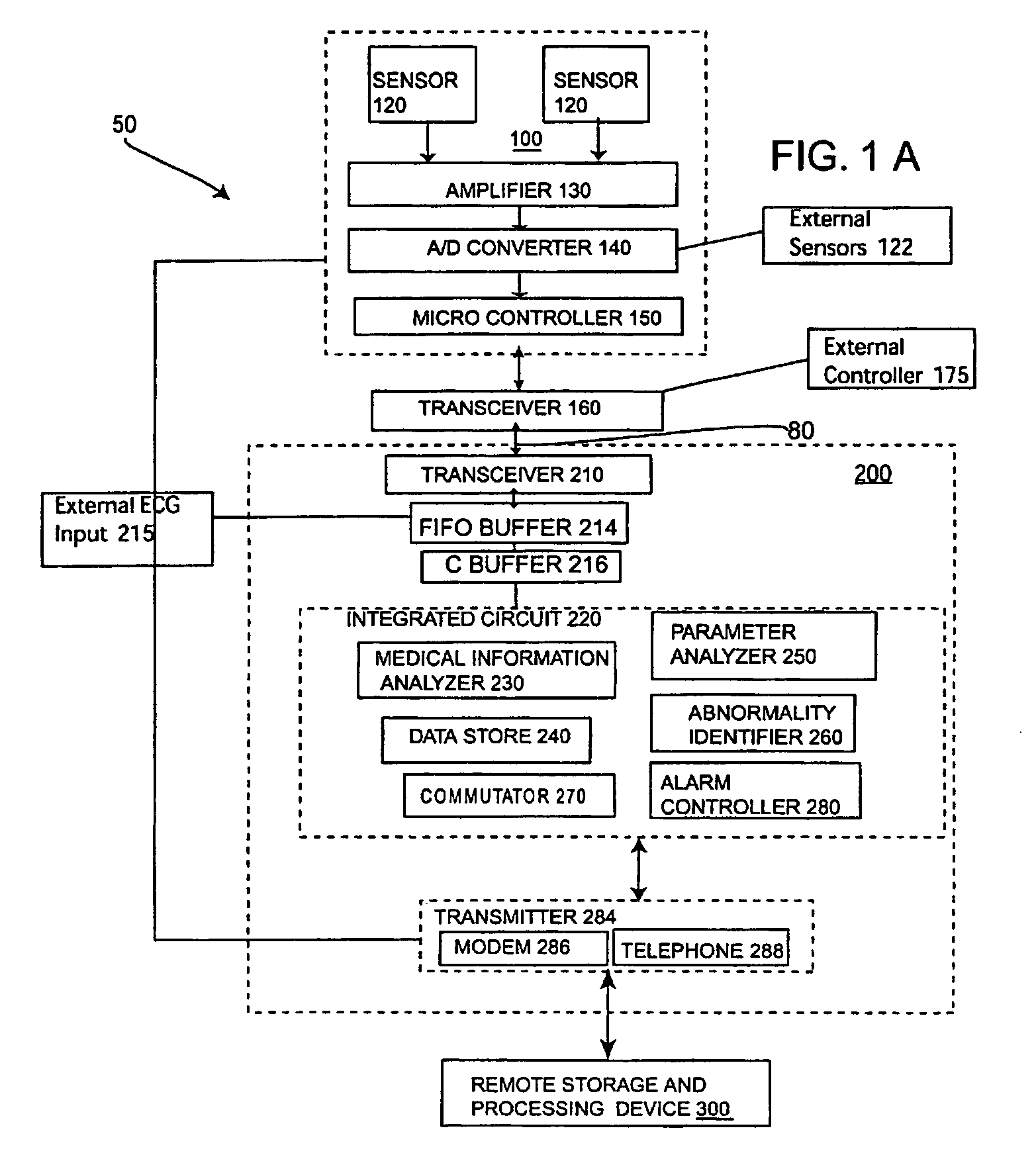System process for analyzing the medical condition of a user
a medical information analysis and user technology, applied in the field of system process for analyzing the medical condition of users, can solve the problems of limiting the availability of patients, the refusal of doctors or other medical professionals to prescribe the use of portable medical information analyzers, and the refusal of patients to use monitoring devices
- Summary
- Abstract
- Description
- Claims
- Application Information
AI Technical Summary
Benefits of technology
Problems solved by technology
Method used
Image
Examples
first embodiment
[0063]FIG. 3 is a schematic block diagram of information-processing device 200 substantially shown in FIG. 1A. Information processing device 200 can be in the form of a PC, or in the form of a portable device that can attach to a user or may be in other forms. Information processing device 200 can be powered either by a battery or an A / C power supply (not shown). Information processing device 200 includes a bi-directional wireless or wire based transceiver 210 that sends and receives information either through a wire based system such as a LAN or a wireless system such as Bluetooth™ technology, infrared or RF frequency transmissions. If information processing device 200 is in the form of a personal computer, then the method for communication will most likely be wireless. However, if information processing device 200 is in the form of a portable device then the method for communication could be either wire or wireless based.
[0064]With this first embodiment, there are a series of elem...
second embodiment
[0076]FIG. 4 is a schematic block diagram of the information-processing device shown in FIG. 1. In this embodiment, medical information analyzer 230, medical-based parameter analyzer 250, and abnormality identifier 260, external stimuli analyzer 261, external stimuli controller 262, environmental analyzer 263, commutator 270 and alarm controller 280 are all disposed on a single integrated circuit (IC) circuit 221. Data store 240, and personal data store 245, are coupled to (IC) 221 as physically separate elements. However, these physically separate elements still work in a manner similar to the components in (IC) 220 to produce substantially the same result.
third embodiment
[0077]FIG. 5 is a schematic block diagram of the information-processing device shown in FIG. 1. In this embodiment all of the components originally on IC circuit 220, are now separate elements coupled to each other and in communication with each other. These separate elements, include medical information analyzer 230, data store 240, medical parameter analyzer 250, abnormality identifier 260, commutator 270, and alarm controller 280. Not included in this design are external stimuli analyzer 261, stimuli controller 262 and environmental analyzer 263. All other elements such as transceiver 284 are also connected to these components as separate elements. In addition, in this embodiment, GPS system 290 is coupled to portable information device 100. With this design, portable information device 100 can be located in a remote location, away from information processing device 200 and still deliver the location of the user when the user is experiencing an abnormal medical condition.
[0078]FI...
PUM
 Login to View More
Login to View More Abstract
Description
Claims
Application Information
 Login to View More
Login to View More - R&D
- Intellectual Property
- Life Sciences
- Materials
- Tech Scout
- Unparalleled Data Quality
- Higher Quality Content
- 60% Fewer Hallucinations
Browse by: Latest US Patents, China's latest patents, Technical Efficacy Thesaurus, Application Domain, Technology Topic, Popular Technical Reports.
© 2025 PatSnap. All rights reserved.Legal|Privacy policy|Modern Slavery Act Transparency Statement|Sitemap|About US| Contact US: help@patsnap.com



